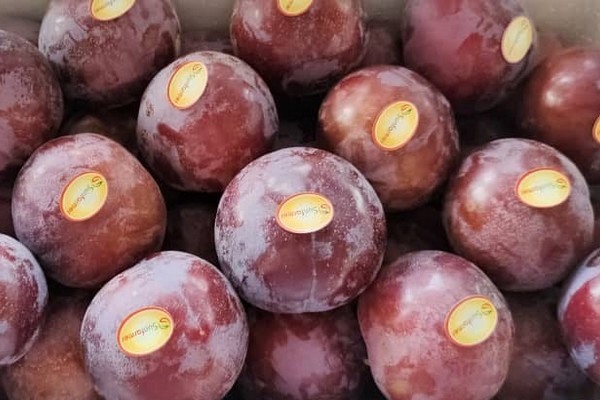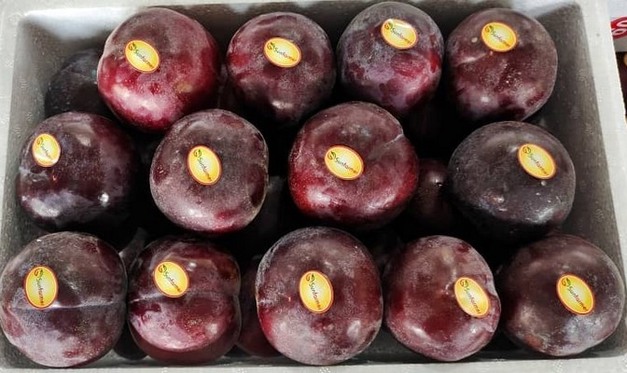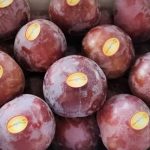Plums are becoming more popular among consumers in India, resulting in growing quantities of imported fruit, says Amit Sharma, owner of Indian fresh produce trader Fresko Fruits: “The Indian fresh fruit market continues to show a growing appetite for imported produce, and plums are no exception. Among imported plums, Chinese plums have carved out a notable presence due to their competitive pricing, attractive appearance, and extended shelf life. However, the 2025 season has presented a mixed performance for this segment. This year, the arrival of Chinese plums into India was delayed compared to previous seasons. Initial shipments were limited, partly due to high freight costs, currency fluctuations, and increased scrutiny during customs clearance. These factors led to lower early availability, which drove up wholesale and retail prices.”

The Chinese plums are doing rather well in the Indian market, as quality has been strong this season, Sharma explains. “Despite the logistical hurdles, demand for Chinese plums remains strong in urban markets such as Mumbai, Delhi, and Bengaluru, where consumers are increasingly open to premium imported fruits. Retailers report good movement, especially as domestic plum supply tapers off and imported options dominate shelves. Quality-wise, Chinese plums this season have been well-received, offering good size, color, and taste. Importers, however, continue to face challenges in maintaining cold chain logistics and ensuring quick clearance to preserve freshness.”
Sharma states that the volumes of Chinese plums are similar to those of last year. “Weather conditions were mostly favorable during the key growing phases, although certain regions faced mild disruptions due to rain and temperature fluctuations. The harvest timing has been typical, with volumes gradually picking up from early July. Overall, while volumes are yet to reach last year’s levels, the Chinese plum has maintained its foothold in India’s high-end fruit segment. As supply normalizes through June and July, market performance is expected to improve further, driven by consistent demand and reduced local competition.”

As general availability for plums is lower, prices for Chinese plums have gone up, but quite a bit, Sharma explains. “Consumer demand in India remains strong, especially in metro cities like Mumbai, Delhi, and Bengaluru, where imported fruits have a loyal customer base. The gap in availability of domestic plums and the delayed entry of Chinese plums has created a short-term demand surge, leading to premium pricing at retail. Compared to the previous season, wholesale rates are up by approximately 15-20%, and retail prices have reflected that. As more volume enters the market, prices are expected to soften somewhat, especially by late June to early July.”
“Looking ahead, the Chinese plum season still holds strong potential. Once supply stabilizes and competition from domestic produce reduces, there will be more consistent movement in the Indian market. Importers are advised to plan shipments carefully and focus on quality and freshness, as consumer expectations for imported fruits remain high. Building stronger distribution networks and working closely with retailers will be key to a successful season,” Sharma concludes.
For more information:
Amit Sharma
Fresko Fruits
Tel: +91 989 196 3633
Email: [email protected]
